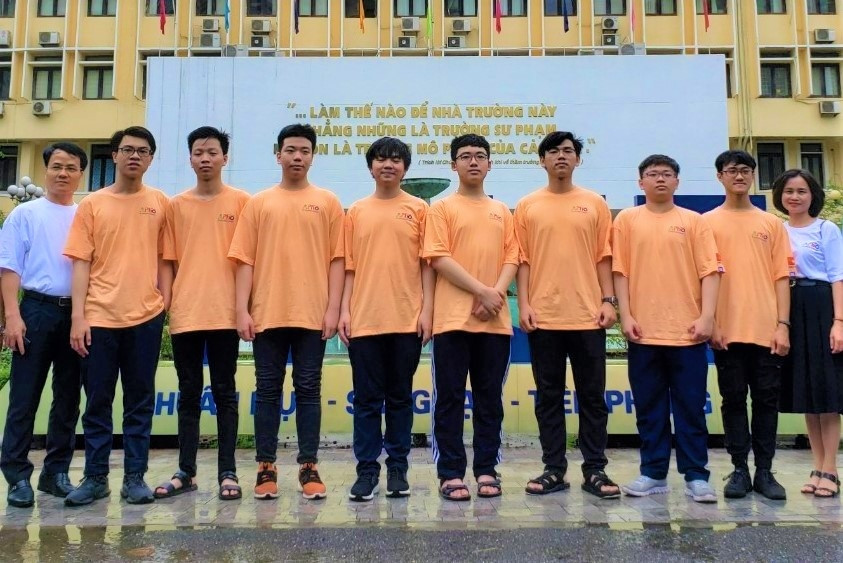Sex education begins with children as young as four in the Netherlands; In New Zealand, this subject is applied starting at the elementary school level.
“I am a giant bear in love. I do not love other bears, but butterflies. But I am ashamed to say. What can I do?”, Teacher Betty van Zijtveld draws a bear on a piece of paper and says.
Betty’s 4-5 year old students started to think. “Waving at the butterfly?” a child’s comment. “Jump there,” another hint. “But it might scare the butterflies,” replied the teacher. “What can a bear do to express his feelings without chasing away butterflies?” The children decided the bear should give flowers and began to enthusiastically redraw the scene.
It’s Monday morning at De Roos Preschool in Amsterdam, The Netherlands, and it’s the start of “Spring Week”. This program is part of a national initiative to help Dutch children access daily lessons on relationships, sex and resilience. Guardian.
Elsbeth Reitzema, a member of Rutgers, said the sex education programme, funded by the Dutch government and started 14 years ago, aims to help children have a more objective view on sensitive issues. Rutgers is the leading sex research institute in the Netherlands. Organizational materials are used in primary and secondary schools across the country.
“We want to expose children to topics like emotions and sex from an early age,” says Elsbeth Reitzema.
According to Reitzema, research shows that, when children learn about relationships and sex at a very young age, they become sexually active at a later age and make informed choices.
During Spring Week, children are given a simple explanation of reproductive activity. Teachers will discuss expressing emotions and setting boundaries, about gender diversity, self-image, and the dangers of online. Each topic is taught in an age-appropriate manner.
According to law, All primary school children in the Netherlands must receive sex education. The system allows flexibility, but students must learn some core principles – including gender diversity and sexual assertiveness.
This open attitude to sex education has resulted in the Netherlands’ lowest number of teenage pregnancies in the European Union (EU): 3.2 per thousand girls and steadily declining. Dutch teens often start having sex later than in the US or other European countries.
In New Zealand, sex and relationship education is part of the Health and Physical Education chain curriculum, according to New Zealand Family Planning. Primary and secondary schools should teach this material up to grade 10.
If parents do not want their children to take sex education classes, parents should write to the principal. In elementary school, children learn about the human body, friendship, different types of families, consensus, and respect for themselves and others. During the final years of primary school, children are taught about puberty, body development, reproduction, relationships…
At the secondary school level, adolescents learn lessons in positive and supportive relationships, including intimate relationships, contraception, cultural approaches to gender and sexuality…
LIFE virtueSex education is a compulsory subject since 1992. Experts teach proper contraception and different sex positions.
According to World Bank data, European countries have the lowest teen pregnancy rates in the world. In Italy, Germany and Switzerland, out of every 1,000 babies born, fewer than four have a teenage mother. The number in countries like Sweden, France, Denmark and Belgium is around 5-6.
The World Bank links this to progressive sex education programs. Sex teachers in these countries do not emphasize the “dangers of sex”. Instead, they focus on teaching safe sex methods, how to stay healthy, and how to take care of yourself in adulthood.
While Europe is open to gender and sexual content in schools, Asian countries are more closed off. In Indonesia, sex education is optional. Indonesians are often warned about the dangers of having sex, but are not taught why it can be dangerous or how to do it safely.
The Dutch organization Rutgers has opened sex education classes in 38 schools in the country. The courses, for children 12-14 years, are intended to address issues of sexuality, relationships, gender and emotions. Lessons are often taught through games.

In a school in Jakarta, sex education lessons mostly come from games. Photo: Security
In India, sex education has long been controversialmaking this content rare in schools. Statistics from this country show that about 53% of children aged 5-12 years are sexually abused. The reason the victims didn’t speak up was because they didn’t even know they had been abused or were too embarrassed to talk to their parents.
Based on Indian TimeMore than 50% of girls in rural India do not know about menstruation or its meaning. The United Nations report also shows that India now has the third highest number of HIV infections in the world and youth aged 15 to 25 accounted for 31%. In addition, India has the highest rates of population growth and teenage pregnancy.
In 2007, sex education was included in the curriculum of the National Council for Education, Research and Training. However, the content received widespread opposition and was later removed in states such as Gujarat, Maharashtra, Madhya Pradesh and Goa, according to the report. Indian Time. Not only parents but also teachers objected because they thought this was a way to advertise multinational companies’ condoms. They are also worried that the program will increase students’ curiosity.
Meanwhile in South Korea, a 2016 report by the Korea Centers for Disease Control and Prevention stated that the average age at first sexual intercourse among Korean teenagers was 13.1 years. Although the age at first sexual intercourse has decreased every year since then, sex education in schools has remained stagnant and underdeveloped.

A group of students discuss contraceptive methods at the North Chungcheong Youth Sexual Culture Center. Photo: North Chungcheong Youth Sex Culture Center
Korean students start learning sex from elementary school. But according to The Korea Times, Sex education in schools in this country is a “one day” lecture.which are often replaced by video clips without any specific explanation of the actual method of connection and protection.
Experts say that inadequate knowledge of sex can lead to unsafe sexual experiences. Some high school students use unhygienic options such as plastic bags to replace condoms, feeling embarrassed to buy them in public.
“Teenager love should not be seen as a taboo subject, but should be discussed openly to send a message that they are responsible for their bodies and responsible for their behavior,” said Park Hyeon-yee, director at the Aha Center for Sex Education. and Counseling for Adolescents.
“Teenager sex happened, or will happen in the near future. Denying that fact can lead to worse choices or consequences if education is not respected.” said Mrs. Parks.
Dawn (Based on Guardian, Indian Time)
at Blogtuan.info – Source: vnexpress.net – Read the original article here



